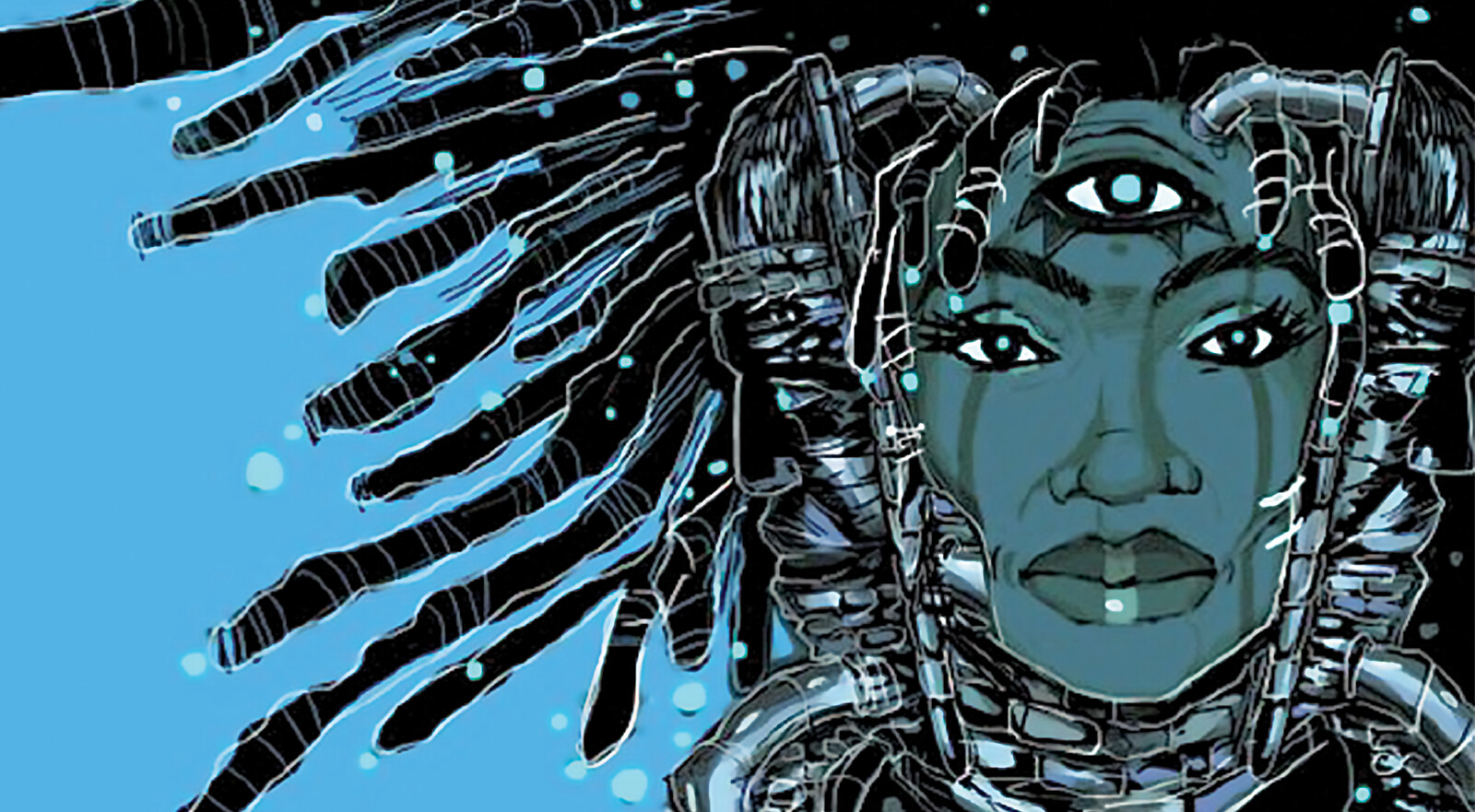October 7 & 10, 2018, 1pm
This two-day Afrofuturism Symposium bridges concepts in the creative worlds of Afrofuturism and science. The fluidity of time and space captures the imagination of Afrofuturists harnessing threads of time to create new futures, an enlightened past, and a great present. Day 1 celebrates the influence of Ancient Egyptian and Nubian cultures in the mythos of comics and Afrofuturism. Day 2 explores the wonders of time travel in Afrofuturist art, narratives, and life aptly termed Black Quantum Futurism. Together, these events aim to reveal the symbiotic relationship between the intuiting creative and the science that provides insight into our lives and universe.
Day 1: Ancient Egypt and Nubia and the Art of Comic Book Artist John Jennings
Sunday, October 7, 1pm
Oriental Institute, 1155 E 58th St, University of Chicago campus
Ancient Egypt and Nubia capture the world’s imagination. These fascinating cultures and mythologies intrigue scientists and artists alike, with both seeking greater understanding of these progressive cultures.
“Afrofuturists love to anchor their work in golden eras and there’s no ancient culture that merges the heights of science and the esoteric like the Egyptians and Nubians.” –Ytasha L. Womack, author of Afrofuturism: The World of Black Sci-Fi & Fantasy Culture.
From musician/philosopher Sun Ra to George Clinton, songstress Erykah Badu to author N.K. Jemison, Afrofuturists embrace the lore of the ancient worlds to inspire their art and heal audiences. These stellar mythologies have inspired some of the greatest comics of our time. As artists create new worlds inspired by the ancient, scientists are uncovering new insights into the glorious past. This exciting panel will explore research from both Afrofuturists and Egyptologists, both of whom bring “the ancient to the future/now.”
Presenters: Dr. Stanford Carpenter will explore Ancient Egyptian and Nubian mythology’s influence on comics and Afrofuturist art. Dr. Bruce Williams will discuss the shared early Pharaonic cultures of Upper Egypt and Lower Nubia and Ancient Nubian culture at Meroe, Sudan. UChicago Professor and Egyptologist, Dr. Brian Muhs will discuss the formation of Nubian and Egyptian identity in the Greco-Roman period. Dr. Tasha Vorderstrasse will discuss Medieval Nubian Art.
* Afrofuturist art from Black Kirby, by John Jennings and Stacey Robinson, will be displayed in the gallery.
Day 2: Black Quantum Futurism & Time Travel
Wednesday, October 10, 6pm
Gray Center for Arts and Inquiry, 929 E 60th Street, University of Chicago campus
Time travel in the mythos, life, world, and affairs of people of the African Diaspora and Continent is a synergy point for liberation, self-discovery, and healing. From the writings of Octavia Butler to the musicianship of Janelle Monae, time travel is an inspired theme in black cultural production.
“For Afrofuturists, the notion of bending time erases the prism of race-based limitations that all too often lace the present and define the past. Parallel dimensions that can be channeled through music, desire, and thought are common themes among Afrofuturist artists.”
–Ytasha L. Womack, Afrofuturism: The World of Black Sci-Fi & Fantasy Culture.
Black Quantum Futurism, a theory, and term cultivated by Afrofuturist Affair founder Rasheedah Phillips, explores the idea of time travel, liberation, and quantum physics. The theory merges traditional African concepts of time and contemporary applications.
This session will explore the ideas in Black Quantum Futurism and time travel, the artists who create such works, and the science behind the concepts. School of the Art Institute of Chicago Professor and artist D. Denenge Akpem will present and discuss time travel as a mode of liberation. “If you can create a new vision of the future, you can create a new vision of the past,” says Akpem. Ytasha Womack will moderate a discussion that includes film curator Floyd Webb, musician David Boykin, and UChicago Professor and Physicist, Dr. Daniel Holz. The talk will provide insights into time travel, history, and timelessness in an array of works by black artists and innovators.
The Afrofuturism Symposium at the University of Chicago is organized by author Ytasha Womack and architect Antwane Lee.
**Both days are free and open to the public. Food and beverages will be served.**
Persons with disabilities or who may need assistance for Day 1 at the Oriental Institute can write: oi-education [at] uchicago.edu or call 312 702 9507. For Day 2 at the Gray Center for Arts and Inquiry, they may write: scraig [at] uchicago.edu
The Afrofuturism Symposium is sponsored by The Center for the Study of Race, Politics, and Culture; The Gray Center for Arts and Inquiry; the Art, Science, and Culture Intiative; The Oriental Institute; and UChicago Arts at The University of Chicago.

